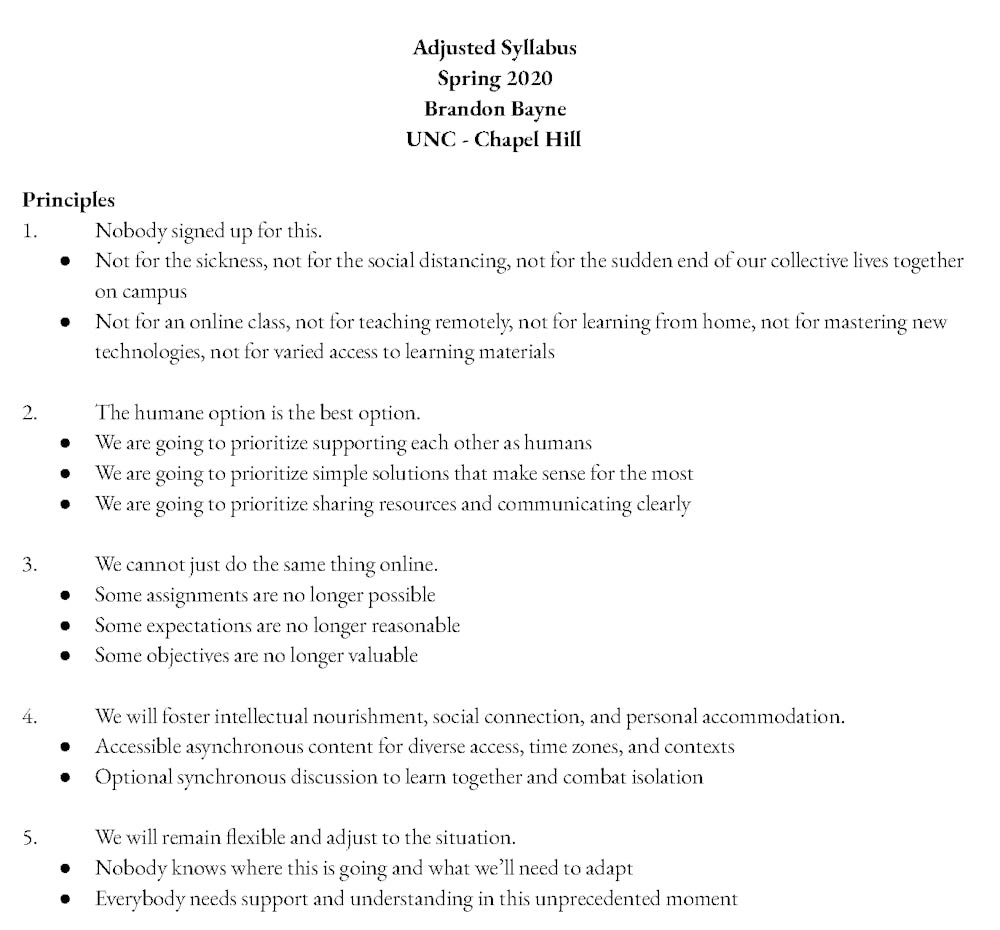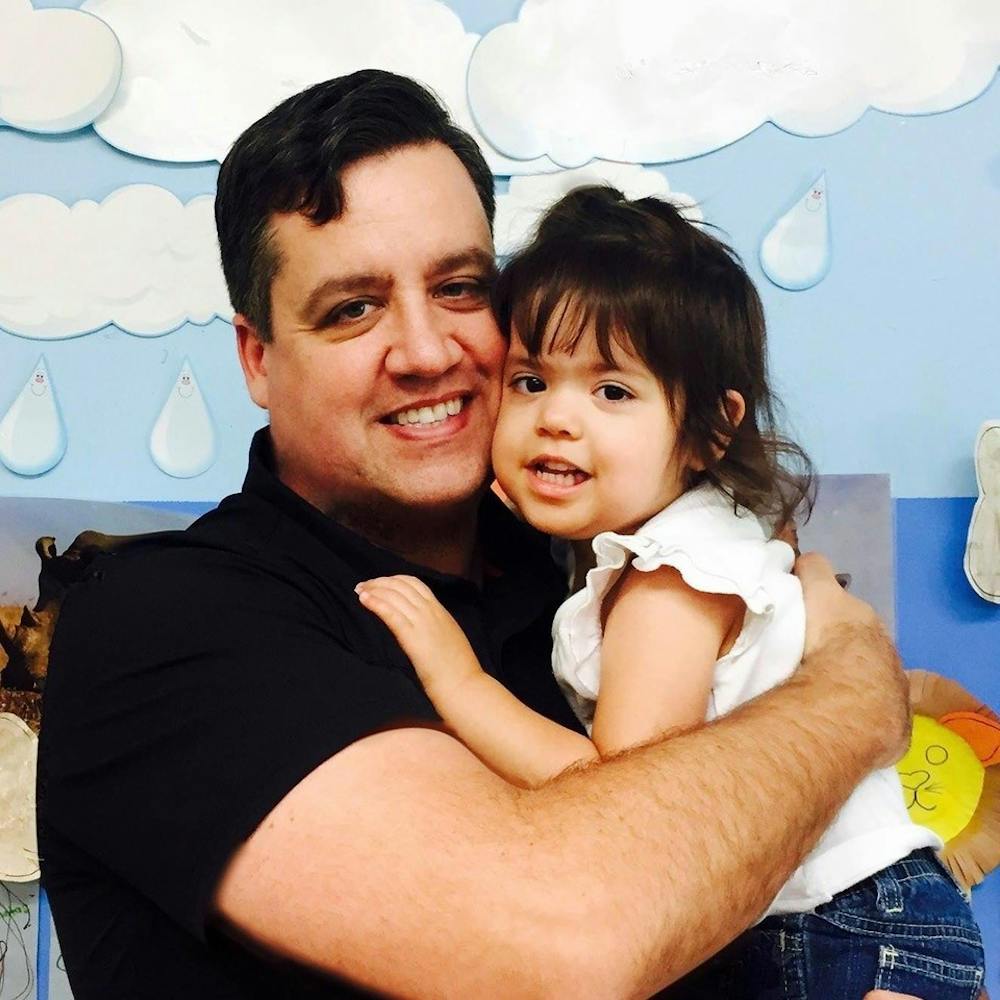“I found out that they were grappling with a lot of anxiety and family considerations and had diverse access to technology and course materials,” Bayne said. “Paired with the two hurricanes, the two water main breaks and the ongoing controversies over Silent Sam that have shaped their time at UNC, I wanted to let them know that we as faculty see what they have endured and are in this together with them.”
Junior Isabel Donnolo is a student in Bayne’s Religion in America class. She said that initially receiving a survey — as opposed to a new syllabus — differed from the emails she received from her other professors.
“That was helpful to get an initial read on things,” Donnolo said. “I know it’s frustrating for absolutely everyone involved in this situation, but he was more taking it as an opportunity to check in on everybody, which I’ve seen him do that a lot during the semester. He really cares a lot about people.”
Bayne said that after sending out the original document to his students, he followed up with a more detailed syllabus that outlines specifics for how his Religion in America class is going to operate under the new conditions. Along with thanks and questions from his students, he said he received a lot of support.
“The main thing that I’ve been getting from my students is them asking me if I’m OK,” Bayne said. “Which has been really amazing. They know that I started out the semester rough, and that I have already been going through it.”
At the beginning of this semester, Bayne suddenly lost his mother to an aggressive form of cancer. He had to take time off from teaching to travel to his hometown and care for her before she passed, and grieve the loss of a parent. Bayne said this experience inspired one of the principles in his new syllabus: “We are going to prioritize each other as humans.”
“I had to ask my students to see me as a human, and not just as their professor,” Bayne said. “Now, remaining flexible with them and keeping an open mind with them means I need to do the same thing.”
But Bayne’s syllabus circulated far past his Religion in America class. He said he has received countless emails from educators at UNC and all over the world, many of whom he has never met in person.
Méndez said the syllabus has gone “totally viral” in the world of academia. Méndez said he and many others used Bayne’s document as inspiration for their own revised syllabuses.
“It goes back to what that document does very well,” Méndez said. “It captures a feeling, a moral instinct, an impulse, a set of principles, right? However I translate that into the classroom, that is the truth north. That’s where I want to be with this, and it’s wonderful to see other people latch onto it.”
Méndez said Bayne serves as a leader to all of the junior faculty in the Religious Studies department. He described Bayne as a friend, a mentor and somebody who everyone can depend on. He also said Bayne’s attentiveness to the “minority case” in his everyday life — as a teacher and a person — shines through in his new syllabus.
Bayne said that he did not intend for the syllabus to be shared as widely as it has been so far. In fact, he said he initially wrote down the principles in the syllabus as guidelines for himself while dealing with the fallout of the coronavirus. What Méndez referred to as “the work of a lifetime” for Bayne took him only a few minutes to express.
To get the day's news and headlines in your inbox each morning, sign up for our email newsletters.
“I was joking with a colleague of mine that this only took me about 10 or 15 minutes to write,” Bayne said. “But this colleague said, ‘Yeah, but it took you 45 years to become the kind of person that would write it.’”
university@dailytarheel.com





